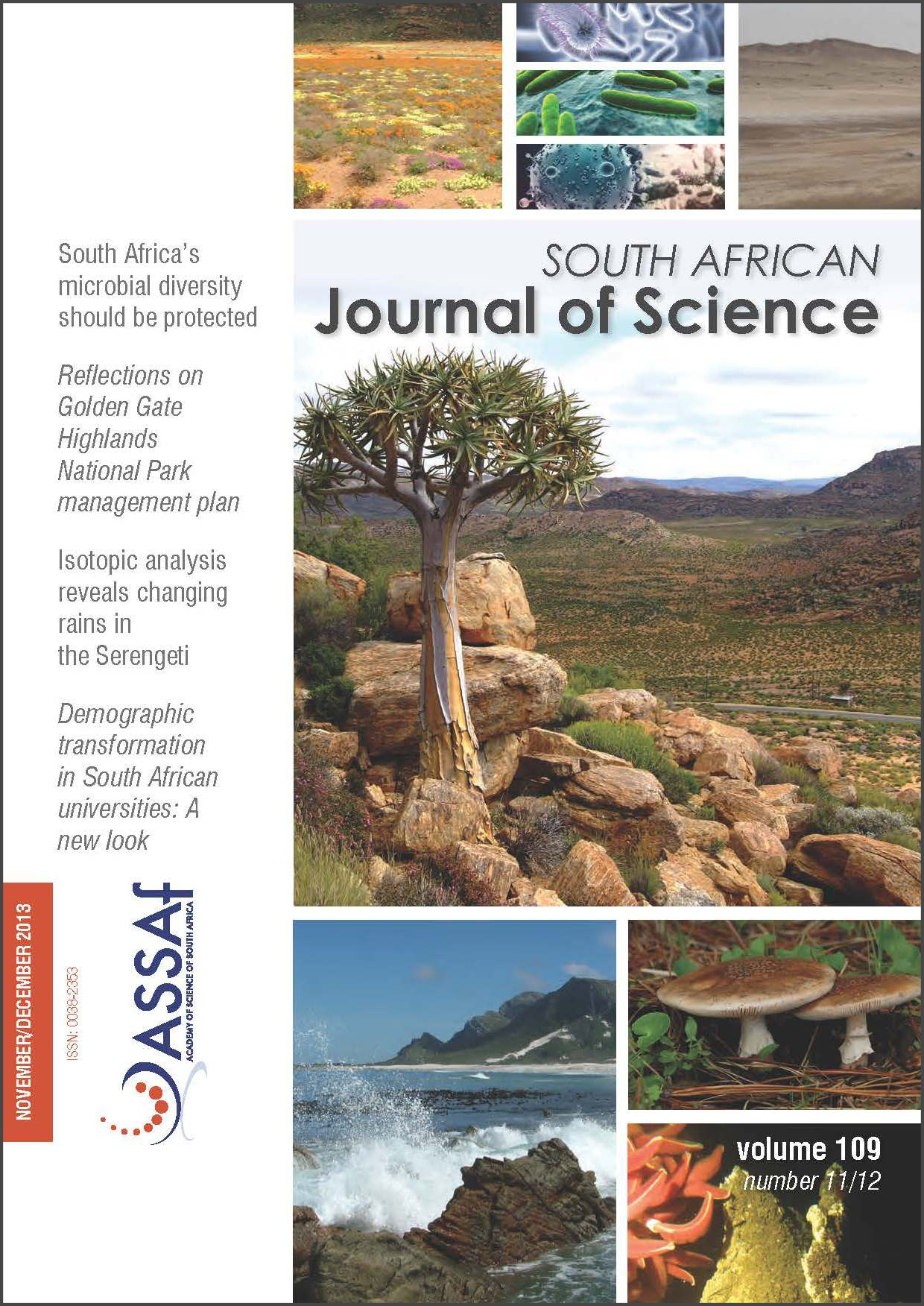Growth-promoting effects of a seaweed concentrate at various pH and water hardness conditions
DOI:
https://doi.org/10.1590/sajs.2013/20120013Keywords:
calcium, mungbean rooting bioassay, natural biostimulants, pot trial, Swiss chardAbstract
Kelpak® – a liquid seaweed concentrate made from the kelp Ecklonia maxima (Osbeck) Papenfuss – is used as a natural biostimulant to promote rooting and improve yield in crops. Plant–soil environmental conditions and the chemistry of water used for irrigation may affect the efficiency of Kelpak. The effect of pH (pH 4.5, 6.5 and 8.5) and water hardness (200 mg/L and 400 mg/L Ca2+) on the growth-promoting ability of Kelpak was assessed using the mungbean rooting bioassay and in a pot trial with Swiss chard. Kelpak promoted rooting in all the treatments in the mungbean bioassay with maximum rooting generally achieved with 20% Kelpak. With 20% Kelpak, the addition of 200 mg/L and 400 mg/L Ca2+ decreased rooting at pH 4.5, increased rooting at pH 6.5 and did not affect rooting at pH 8.5. A similar trend was observed in the pot trial with Swiss chard: leaf and root (fresh weight) and pigment content (chl a, chl b and carotenoids) improved with the addition of 200 mg/L Ca2+ + 5% Kelpak at pH 6.5 or pH 8.5, while Kelpak was able to partially mask the negative effect of 200 mg/L Ca2+ at pH 4.5. These results suggest that while Kelpak is most effective in neutral pHs, it can be used to promote plant growth in a wide range of pH and water hardness conditions.
Published
Issue
Section
License

All articles are published under a Creative Commons Attribution 4.0 International Licence
Copyright is retained by the authors. Readers are welcome to reproduce, share and adapt the content without permission provided the source is attributed.
Disclaimer: The publisher and editors accept no responsibility for statements made by the authors
How to Cite
- Abstract 546
- PDF 1355
- EPUB 279
- XML 207












.png)